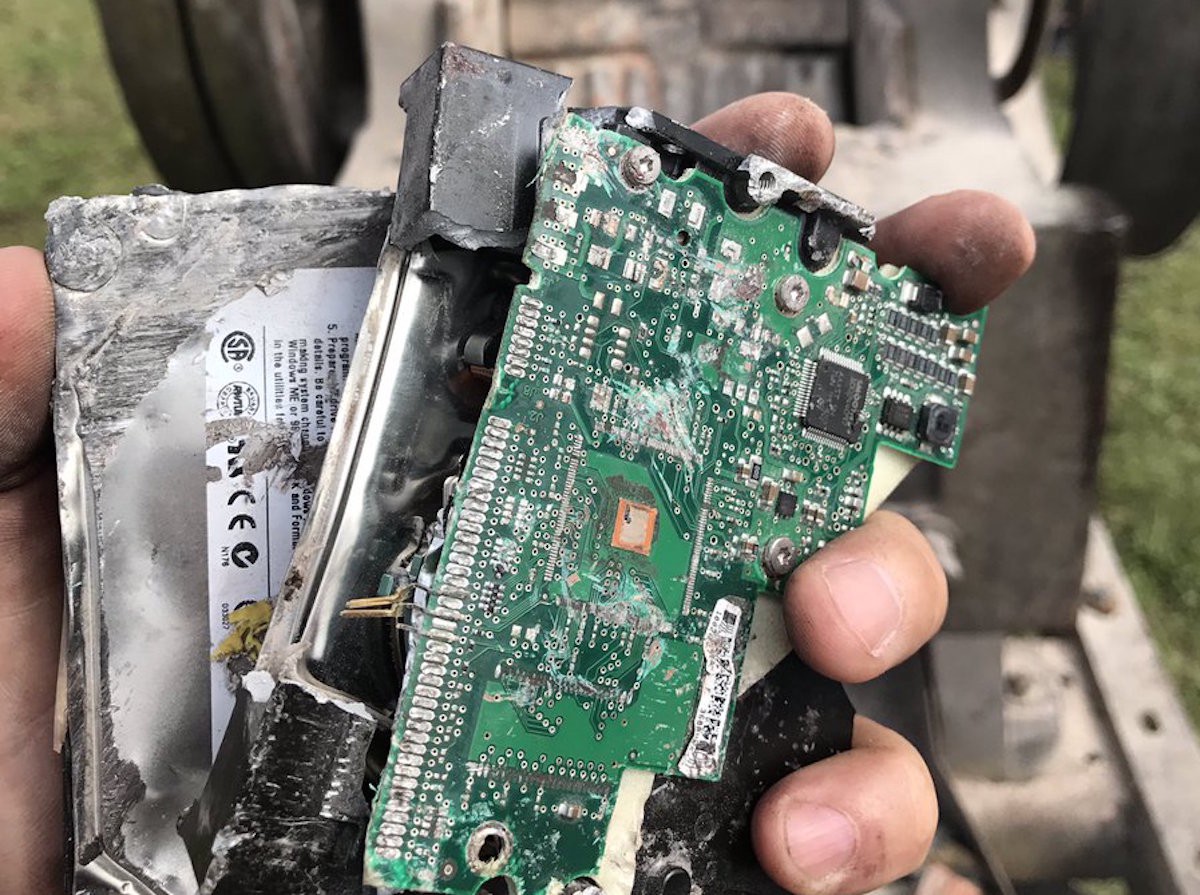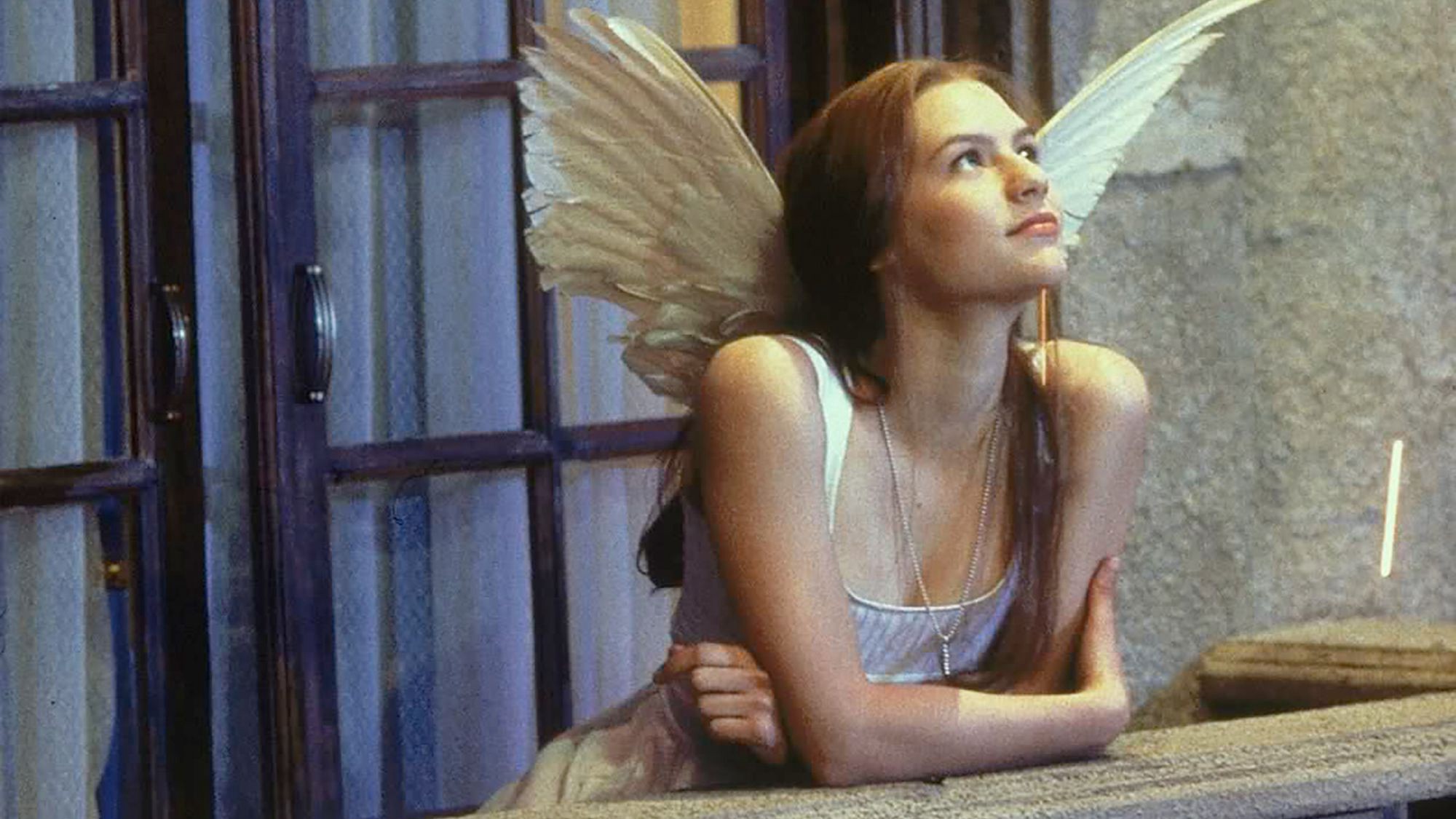news
Someone Just Ran Over Terry Pratchett’s Unpublished Work with a Steamroller
Okay, Pratchett asked him to—but it’s still pretty rare that a request for work to be destroyed posthumously is honored

Beloved fantasy writer Terry Pratchett, creator of Discworld, died in March 2015, but it took two and a half years for his final wishes to be carried out—because it’s tricky to find someone who will let you use a seven-ton steamroller to run over a hard drive.
Pratchett, who was living with early-onset Alzheimer’s for nearly a decade before his death, kept writing right up until the end—and a little past it. His last completed novel The Shepherd’s Crown came out a few months after his death, and The Long Cosmos, a collaboration with British science fiction author Stephen Baxter, was published last year. But he also had at least ten unfinished books, and he didn’t want them to see the light of day. So he stipulated that the drive containing his incomplete works was to be flattened by a steamroller. (These days, it’s not enough to burn or shred a manuscript; you have to break out the heavy, electronics-crushing machinery. Shy authors of the future may have to seek to destroy the Cloud.)
About to fulfill my obligation to Terry @SalisburyMuseum @Wiltshire_flo
Rob Wilkins, Pratchett’s longtime assistant (and the guy who wrote those tweets that made you cry after his death) was tasked with carrying out the execution. The Great Dorset Steam Fair hooked him up with a vintage steamroller named Lord Jericho, which actually sounds like a plausible Pratchett character, but the seven-ton machine didn’t quite do the trick; it wiped out the stone blocks that the drive was resting on, but didn’t destroy the drive itself. Those suckers are hardy. Wilkins had to throw it in a stone crusher to get the job done.
As any fan knows, Pratchett was a big believer in the power of books—in general, not just his own. One of his most indelible creations is the library of the Unseen University, presided over by its orangutan Librarian, in which ordinary books are shelved alongside books that have never been written, books that catch on fire if not kept under running water, and books that have to be nailed shut to prevent them from flying away. But those ordinary books are magical enough. “The truth is that even big collections of ordinary books distort space,” Pratchett wrote. “The relevant equation is: Knowledge = power = energy = matter = mass; a good bookshop is just a genteel Black Hole that knows how to read.” No wonder he wanted close control over the disposition of his work.
There goes the browsing history... Many thanks to @steamfair. Soon to be on display at @SalisburyMuseum in September https://t.co/Di8tvTO4Hi
“It’s something you’ve got to follow,” Wilkins told the BBC, about Sir Terry’s final request. But is it? Plenty of authors have asked for their unfinished work to be destroyed, and they don’t always get their wish. If they did, we wouldn’t have The Aeneid (which Virgil wanted burned), or Kafka’s The Trial (which he wanted burned), or Vladimir Nabokov’s The Original of Laura (which he wanted destroyed, but which his son finally published after 30 years of dithering), or Go Set a Watchman (which Harper Lee did not want published, and then mysteriously supposedly did, but probably didn’t). Other authors’ final works exist in a sort of Schroedinger’s Incomplete Novel space, where they haven’t been destroyed as requested but also haven’t been released: Edward Albee left behind two unfinished plays, which he asked friends to destroy, but as far as we know they haven’t yet. Sometimes, as with Laura and Watchman, manuscripts destined for the bonfire wind up hanging around in limbo for years and finally finding their way into print.

Maybe the trick to having your final wishes honored is to be a real drama queen about it. Setting manuscripts on fire is the expected route, plus any feeling of magnitude kind of gets undercut by the Guy Montag-ness of it all. But requesting that, in Neil Gaiman’s paraphrase of Pratchett’s instructions, “whatever he was working on at the time of his death to be taken out along with his computers, to be put in the middle of a road and for a steamroller to steamroll over them all”—that’s a request that, regardless of your sense of ethical versus literary obligation, you at least can’t ignore.
One lousy steamroller, ten unpublished novels and look at all the trouble I'm in...!
Or maybe the key is just to have a faithful amanuensis, the kind of person who thinks “you’ve got to follow” a final wish. The world may be a little poorer because of Rob Wilkins’ integrity, but listen: we got 70 Terry Pratchett novels, and you probably haven’t read every single one of them yet, and if you have, you could probably happily read them again. And deep in the library of the Unseen University, those lost books are probably sitting on a shelf, waiting to be read—if you can make it past the orangutan.










